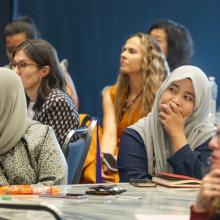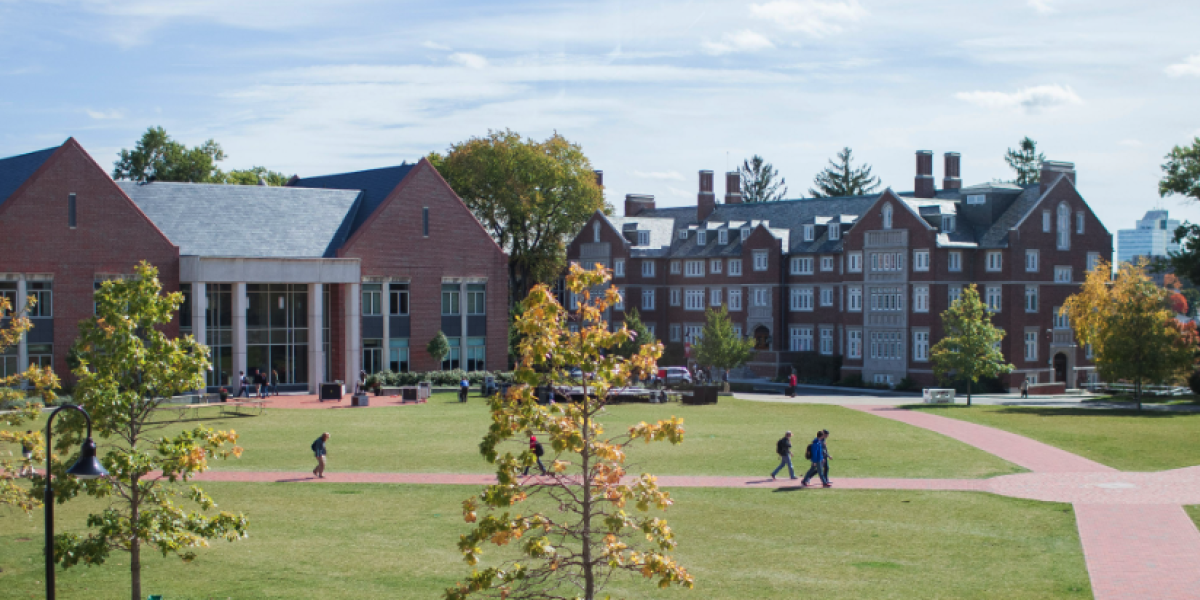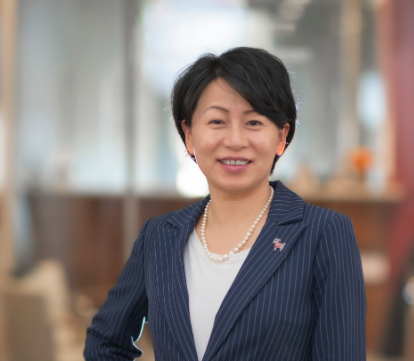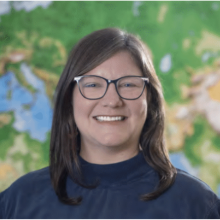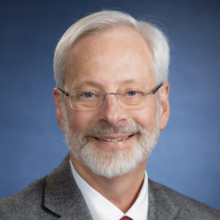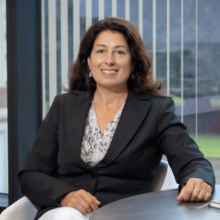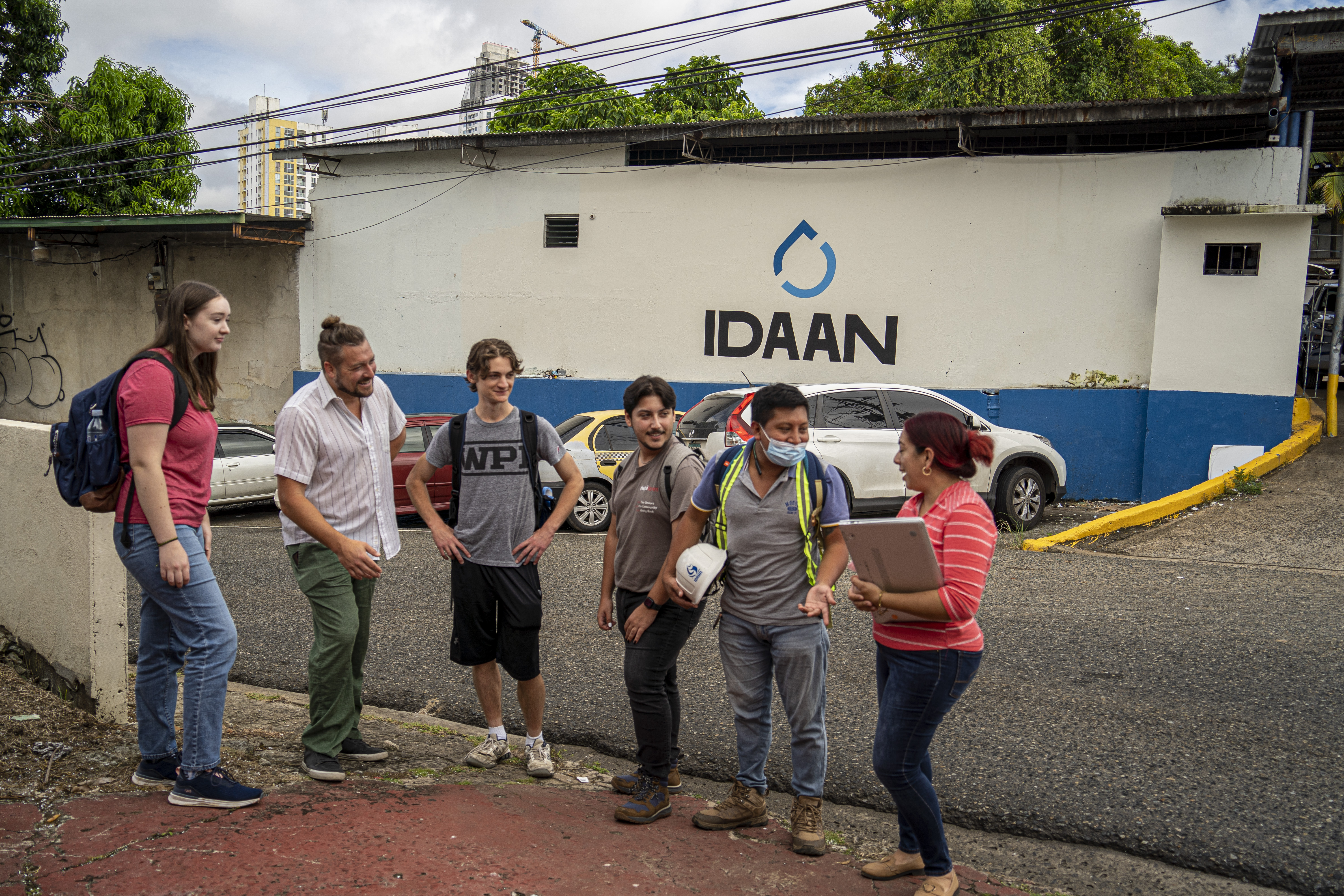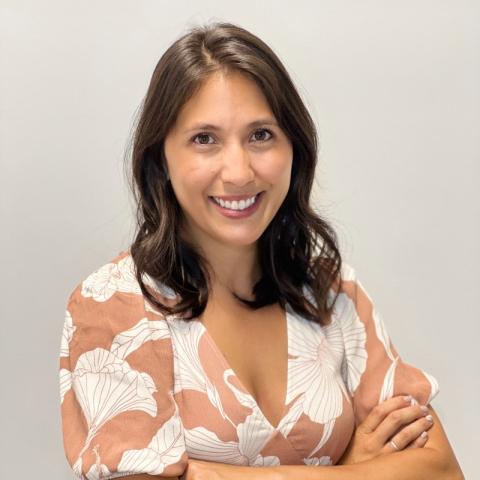
Internationalization

Next-Gen Strategy Development Challenge
Tony Marotta
A Systems Approach to Risk Mitigation
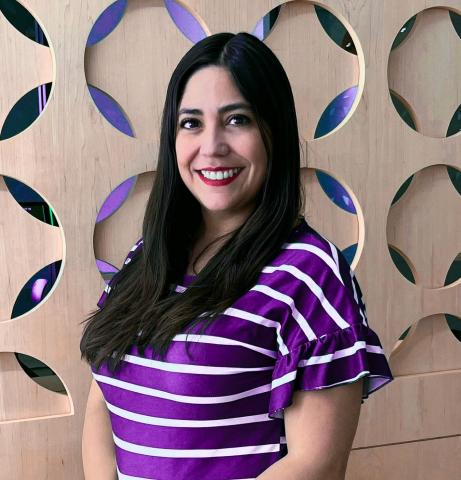
Ana Lilia Ramos
Are International Educators Ready for a Generative AI Future?
2025 Latin America and Caribbean Forum
2025 Africa Forum
Immigration and Visa Implications of First Amendment Activity by International Students and Scholars
2024 Spotlight Worcester Polytechnic Institute
Worcester Polytechnic Institute, a private research university in Worcester, Massachusetts, is renowned for its project-based learning model. These projects are a core part of the university's approach to education, which prepares students to tackle real-world problems through a combination of theory and practice. Students can choose to complete team research projects off campus at more than 50 project centers worldwide through the institution’s signature Global Projects Program. In 2017, the university launched Global Projects for All, an initiative aimed at growing participation in the program by boosting financial assistance and increasing the number of locations where students can complete projects.
In 2023, Worcester Polytechnic Institute (WPI) aerospace engineering major Melissa Kelly, chemical engineering major Faith Suwannapong, and mechanical engineering major Adam Giordani made the long trek to Melbourne, Australia, for a seven-week project focused on plastic bottle cap recycling. Working at the Ecological Justice Hub, a program run by the nonprofit Jesuit Social Services, they conducted research and data analysis on the program's needs, created an assembly line to process bottle caps, designed educational materials to encourage cap collection, and held hands-on workshops to teach the community how to use the bottle caps to create other plastic products such as plant pots.
“We left them with all of the materials that they need to not only make more products but to continue the workshop that we created,” Giordani says. “It was more rewarding when we got back. We were like, ‛Wow, we just made a difference on the other side of the globe.ʼ”
For Kelly, the project provided a valuable opportunity to apply her technical skills in a real-world setting. “A lot of the stuff we do is very technical, so getting to go out into the community felt really rewarding,” she says.
The three students were named winners of the Forum on Education Abroad's 2023 Award for Academic Achievement Abroad. The WPI student team was one of two that were honored for rigorous and meaningful academic projects completed during an education abroad program.
A lot of the stuff we do is very technical, so getting to go out into the community felt really rewarding. —Student Melissa Kelly
Over the last 25 years, WPI students have completed 270 projects with more than 50 organizations in the Melbourne area as part of WPI's Global Projects Program (GPP). Projects at the WPI Melbourne Project Center have addressed issues ranging from improving emergency response to wildfires by mapping vulnerable areas to developing solutions for plastic waste. The longevity of the project center and the impact of the work that students have done in the state of Victoria point to the importance of the GPP for both students and host locations—and underscore why WPI has sought to expand access to the program to all of its students.
Celebrating 50 Years of Global Projects
As a leader in project-based learning, WPI encourages students to apply their education outside of the classroom and develop solutions for authentic, open-ended problems. Many undergraduate courses at the university have a project component. Additionally, all undergraduates must complete three collaborative academic projects to graduate: one within their major; another at the intersection of science, technology, and society; and a seminar or practicum in a chosen focus area in the humanities or the arts. Students can choose to complete these collaborative projects close to campus or farther afield, through the GPP.
The GPP—for which WPI won its first Senator Paul Simon Spotlight Award in 2003—has been a core part of the undergraduate curriculum for 50 years. The program's first project center was established in Washington, D.C., in 1974, and since then, the GPP has expanded across the world to more than 50 locations. The Global School, which comprises the Global Experience Office (GEO) and the Department of Integrative and Global Studies, collaborates with the three other schools on campus to manage the program, which has had more than 17,400 participants as of 2024.
The Global School is also responsible for recruiting, training, and supporting the 100+ faculty members who advise at project centers each year. Two faculty members typically accompany 24 students to a project site for seven weeks of full-time work.
Expanding Access to the GPP
Approximately 85 percent of WPI students now participate in the GPP, thanks in part to the Global Projects for All initiative, which was launched in 2017 as part of WPI's strategic plan and for which WPI was awarded its second Senator Paul Simon Spotlight Award in 2024. The initiative seeks to grow participation in the GPP by removing financial barriers and increasing the number of global projects on which students can collaborate.
“We're doing something that's so distinct from our peers as a STEM institution that requires all of our students to be trained in social science research methods, in addition to the core of their technical program, and aims for everybody to participate in a global program,” says Kathleen Head, director of the GEO.
As part of the Global Projects for All initiative’s focus on scaling up the GPP, WPI has increased the capacity of its project centers and the number of faculty supporting off-campus advising and project work, says Kent Rissmiller, associate dean of the Global School. The university has also developed an in-house algorithm and “decision support tool,” which combines input from students and project center directors to evaluate mutual compatibility and generate student placements.
In order to defray the cost of participating in the GPP, WPI also established the Global Scholarship as part of Global Projects for All. The scholarship—which provides up to $5,000 to every undergraduate student and began with the class of 2022—is funded through internal operating budget support and a variety of fundraising efforts, including gifts and endowed funds.
We are working all the time on new ways to expand accessibility, diversity, and inclusion in our off-campus programs so that all students can benefit from real-world, project-based learning. —Global School Dean Mimi Sheller
Last year, WPI secured a grant from the Institute of International Education’s American Passport Project to help pay for passports for students who don't already have them. This year, WPI was awarded an Increase and Diversify Education Abroad for U.S. Students (IDEAS) grant from the U.S. Department of State to support students with disabilities in the GPP and improve accessibility at WPI's project centers. “We are working all the time on new ways to expand accessibility, diversity, and inclusion in our off-campus programs so that all students can benefit from real-world, project-based learning,” says Mimi Sheller, dean of the Global School.
As part of its efforts to ensure student success in the GPP, the GEO prepares students before departure and collaborates with the Office of Accessibility Services and the Office of Diversity, Inclusion, and Multicultural Education to support students with disabilities and diverse identities. “Intercultural communication begins at home, including through our support for equitable and effective teamwork, and continues to grow as our students expand their horizons through off-campus research in diverse locations,” Sheller adds.
WPI also requires students to take a mandatory social science research course taught by faculty within the Global School before they travel to their GPP project center. They learn research methods, conduct initial background research, identify a scope of work, and learn about their project site.
Measuring Impact
The GPP's impact is evident in student outcomes, including improved teamwork and problem-solving abilities. In a 2021 survey of WPI alumni, most of those who participated in one or more global projects reported various positive impacts. Nine out of 10 respondents, for example, reported that the program enhanced their ability to view issues from different perspectives and that they felt their project work contributed to their ability to function in the real world.
Students' participation in a wide range of project- based learning experiences supports WPI’s mission to transform lives, turn knowledge into action to confront global challenges, and revolutionize STEM education through distinctive and inclusive local and global projects.
“Our off-campus project experiences immerse students in diverse cultures and work in interdisciplinary teams to tackle complex real-world problems,” Sheller says. “When students have opportunities to apply their knowledge out in the world, they develop new perspectives, become well equipped to lead, and are meaningfully enriched, personally and professionally.

